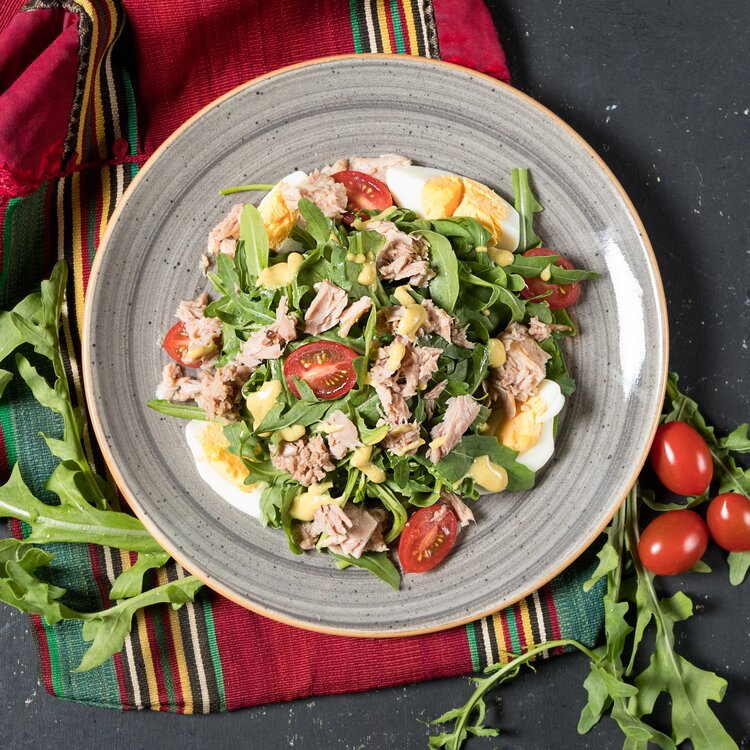
The Ketogenic Diet | Organic Pharmer
Share
Feeling confused about popular diets and not sure what you should be eating for optimal health, weight, and longevity? You’re not alone. There’s a lot of information in the wellness space, and much of it is polarizing and conflicting:
Should you avoid all grains, or can they be part of a healthy diet? Should you cut out fruit because it’s too high in sugar? Is animal protein good for you, or is plant-based best? And, what about legumes? Are they healthy, or are they too high in carbs and lectins? Yep, we hear you! It’s incredibly confusing.
We’re here to help.
In this 6 part series, we will unpack 5 popular diets and share how we work with clients to help them gain clarity and create healthy, enjoyable, results-driven eating habits that work long-term.
Spoiler Alert: The best eating plan is one you can easily follow and that works for you and your unique body, goals, and lifestyle. But, there are some general tips we share with our clients to help them eat well with balance, joy, and confidence. We’re all about empowered, healthy eating, at home, on the go, and in social settings.
Let’s dive in.
The Ketogenic Diet
What is the Ketogenic Diet? The Ketogenic Diet is a high fat, very low carbohydrate diet that replaces carbohydrates in your diet with lots of natural fats, so the body burns stored fat for energy (ketones) rather than glucose. This metabolic process is called ketosis. The ketogenic diet was introduced over a century ago to treat epilepsy and seizures in children who were unresponsive to medication. More recently, Keto gained traction as a way to quickly lose weight.
What on the menu? Red meat, fatty fish, eggs, nuts, avocado, high-fat dairy products, and healthy oils and fats. Low-carb veggies like greens, tomatoes, cucumbers, and onions show up as well, along with small portions of low-sugar fruit like berries, but you must strictly limit these foods to stay in ketosis. Unlike other low-carb diets that lean on protein as a replacement for carbohydrate-rich foods, Keto relies heavily on fat, with a total of 75%-80% of total daily calories coming from fat, to maintain ketosis.

What’s off the menu?: Sugars and starches: And, not just sweets, junk food, and processed grains. Nutritious foods, such as more carb-heavy veggies, fruit, beans, legumes, grains, and root veggies are off the menu too.
What are the benefits?: Keto advocates cite quick weight loss, increased insulin sensitivity, blood sugar control, and reduced cravings as key benefits of the keto lifestyle.
What are the downsides?: The ketogenic diet is highly restrictive and hard to follow. One day of consuming too many carbohydrates can kick your body out of ketosis. Strictly limiting nutrient-dense, fibrous carbohydrates (veggies, fruit, legumes, grains) can make it very difficult to meet daily fiber needs and trigger digestive problems, poor gut health, and nutritional deficiencies. Lastly, a diet high in animal products like marbled meats and saturated fat can put you at higher risk for kidney disease, osteoporosis, and gout.
Bottom line: The Ketogenic diet is challenging to maintain and has no room for forgiveness, meaning no indulgences or slip-ups. This way of eating can also feel socially isolating, especially when it comes to shared meals, celebrations, and holidays. While some studies suggest that a ketogenic diet can help people lose weight more rapidly than other diets, this particular advantage appears to dissipate over time, probably because Keto, like other highly restrictive diets, is hard to sustain long-term. Bottom-line: Keto may work in some circumstances for some people, it is not a diet without risks and is best done under the watchful eye of a healthcare professional. *Individuals with kidney disease, diabetes, heart disease, bone problems, and thyroid conditions should consult their healthcare provider before following a ketogenic lifestyle.

If you enjoyed this post, please follow us on social and keep an eye out for our next post in our Finding a Diet that Works for YOU series, where Lisa discusses the Paleo Diet.

2 comments
This series sounds incredibly helpful! With so much conflicting information about diets, it’s great to have a resource that clarifies popular options. Understanding the nuances of grains, fruits, and protein sources is essential for making informed choices. I’m excited to see how you’ll help readers navigate these challenges and develop sustainable eating habits that promote health and longevity. Can’t wait for the first installment!
Organic Diet
Thank you for sharing this informative article. It will really help us.